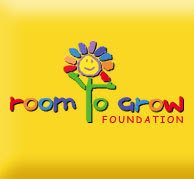Today, just briefly, I find myself missing my middle class naïveté. The way I used to be able to so easily tell the difference between wrong and right and see clearly the line that divides the two.
It started with landmines, interestingly enough. I remember sitting in a classroom in university studying the various makes, models and deployment; taking notes of their effects and knowing definitively that the use of such items is plainly wrong. It’s not a moral certainty anymore.
This week, I found myself listening to a story on my balcony, sharing a meal with friends, sharing stories and talking about our work and the people we know. We were talking about children, and those who are unable to have their own, and adoption.
There are all kinds of conversation topics, but especially those one has at social dinners, which are entirely predictable. There are a range of acceptable responses and one selects from them and voices some variation of the words and everyone nods and we all go away satisfied, or at least reasonably sure that we’ve done our social duties as best we can.
Instead of the range of responses I was familiar with on the subject of adoption, somehow, I was hearing about this woman who got pregnant for the sixth time. Within a month of giving birth she was back on the streets again, where she pushes a metal cart, picking through trash in garbage cans. She can’t afford another baby and you don’t know what a tough life is until you have glimpsed where the street people live.
So she sold her sixth baby, because she didn’t have enough money to feed the other five, even working as hard as she did every day.
I had to ask.
“How much was she paid?”
Three thousand baht. About one hundred Canadian dollars.
When I heard the price, my heart dropped.
If the baby was bought by a Thai person, a woman could take it to the hospital within seven days of its birth and have it registered as her own child, provided that the doctor at the hospital isn’t someone who knows her personally and hasn’t witnessed her un-pregnant at some point in the past few months. With a Thai citizenship and a family ready to bring it up as its own, the baby is at leas guaranteed food to eat, a safe shelter to live in and access to a health and educational system.
It was strange because after I stopped thinking about the price and the economics of child birth, I started to see how the situation might just turn out happily for everyone. This idea I have in my head, this romantic notion of motherhood, is what makes strong and loving families in some cases, but not in all cases. In other situations I can suddenly see how it is just that, romantic. If five children get fed, and another gets a well off family to feed and love it, instead of six children crying while their bellies bloat, while they experience illnesses born of malnutrition and while some watch others starve, how can that be wrong?
Of course, children get sold every day into terrible situations and believe me, it’s something I fight against firmly. But no one buys a baby to raise it into a whorehouse, it’s just not economical.
I like this ideal I have where children get raised by their families, where families love all their children and where all the children get fed and I’m clinging to it but I cant help but wonder, if it isn’t just an ideal, and if in the real world where only practical people can survive, alternative arrangements should not be judged so harshly?




